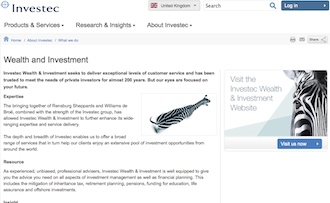Advisers rate quality of service as the single most important factor in deciding to hire or fire a discretionary fund manager.
That was the conclusion of work carried out by Investec Wealth & Investment.
Two-thirds of advisers cited the quality of service as the most important factor when undertaking due diligence on a DFM while 61% would end the contract if service standards fell, the survey found.
Consistent investment performance (54%); value for money (51%); transparency of charges (42%); and cost of management (42%) made up the top five most important factors applied by advisers in selecting a DFM.
According to IW&I’s study, advisers applied the same five criteria when reviewing their ongoing relationship with the firm, underlining a high degree of consistency in how DFMs have been appointed and monitored over time.
However, advisers were far less certain that their peers applied the same due diligence criteria in hiring a DFM and reviewing the ongoing relationship: while 39% of advisers believed this to be the case, 35% said that they use different factors.
{desktop}{/desktop}{mobile}{/mobile}
Mark Stevens, head of intermediary services, Investec Wealth & Investment, said: “Successful advisers know only too well the importance of providing a high quality service to their clients and it follows that they expect a similar focus on this area among their DFM partners. IFAs have a very clear understanding of the type of relationship they want with their DFM and are rightly focused on ensuring that it remains.
“The high degree of overlap in the key factors influencing the decision to appoint a DFM and reviewing the firm’s ongoing performance is particularly encouraging as it underlines the efficiency and transparency that characterises most successful partnerships. Our own experience in working with advisers closely mirrors these findings.”
Advisers predicted that the popularity of bespoke DFMs will remain popular among their clients with nearly three quarters (71%) forecasting that demand will either increase or stay the same over the next five years.

